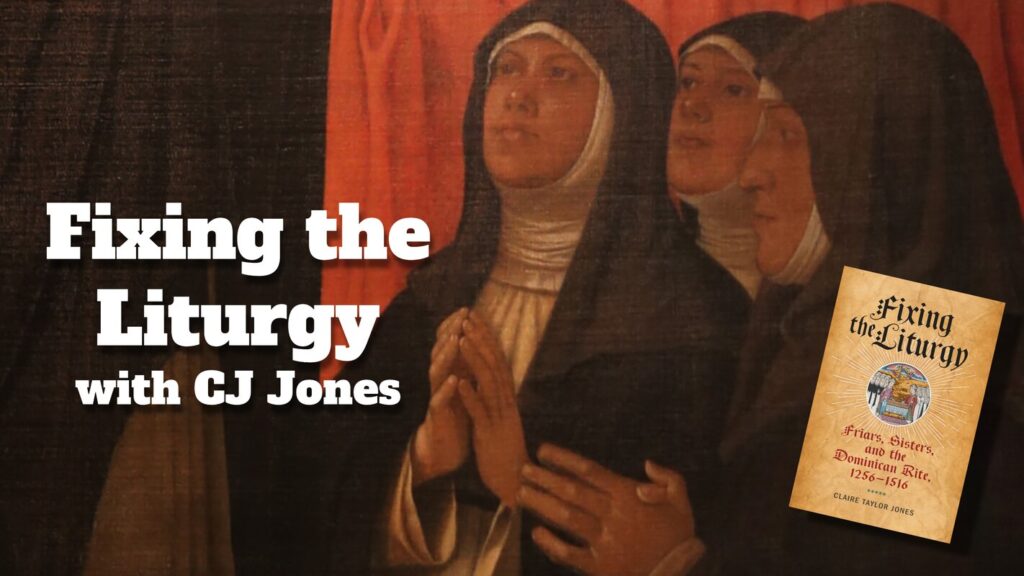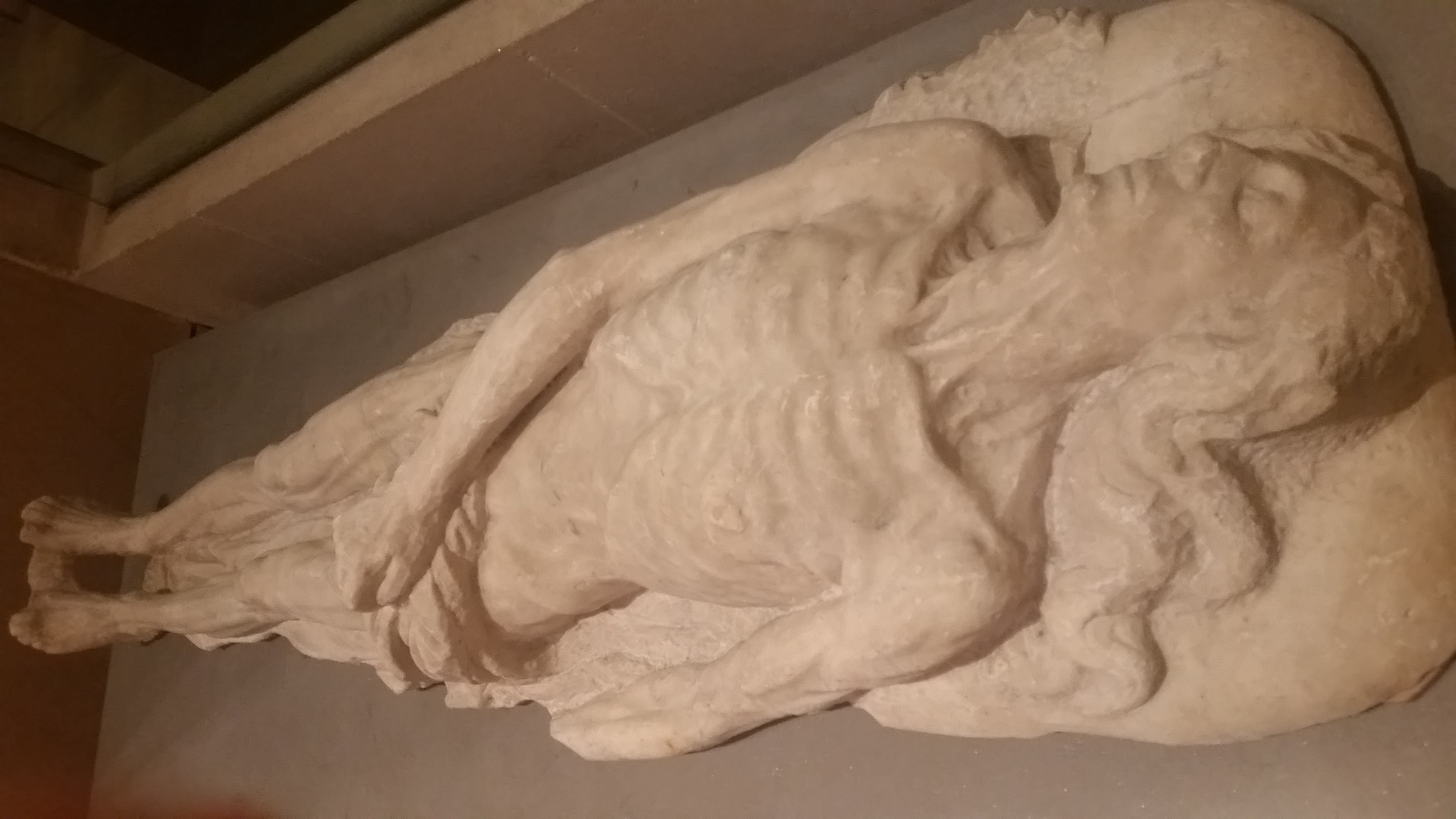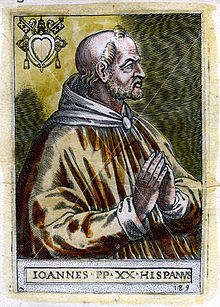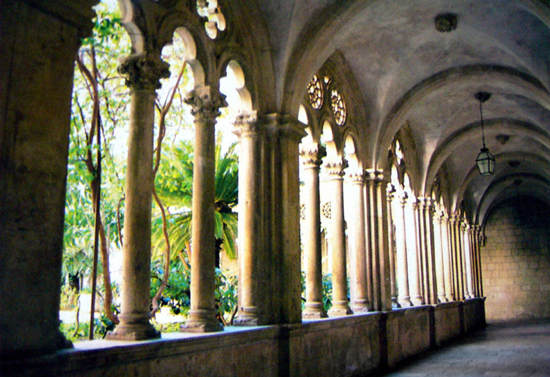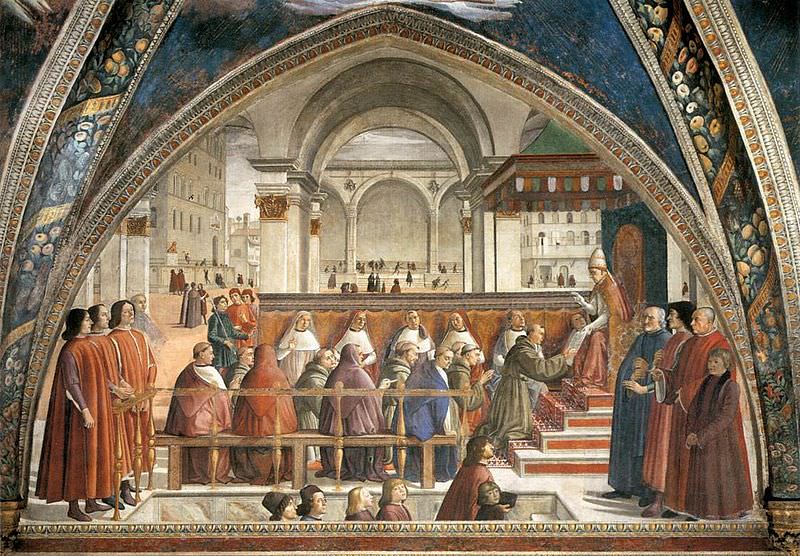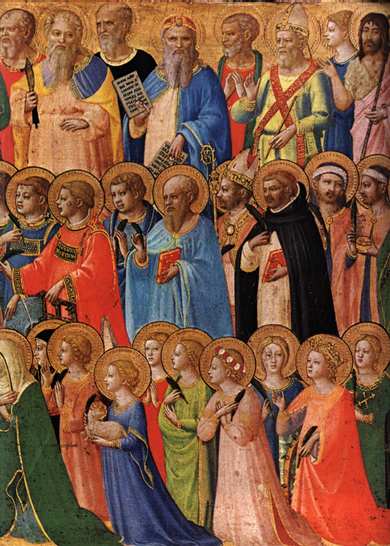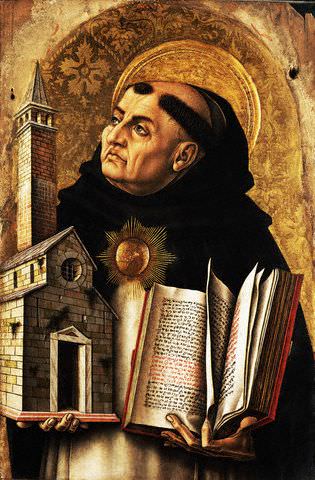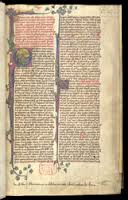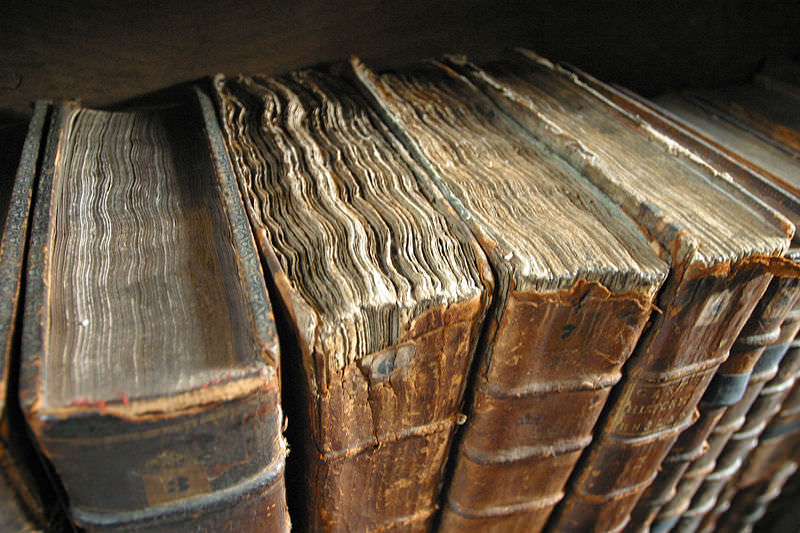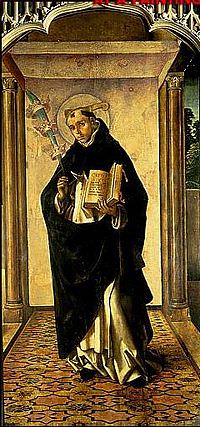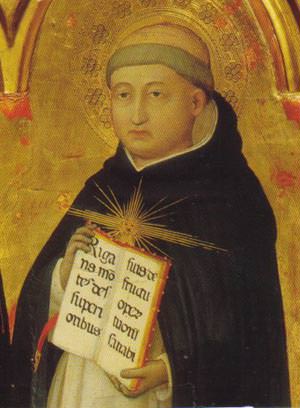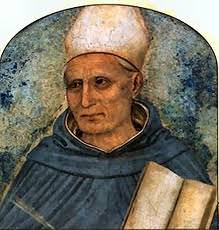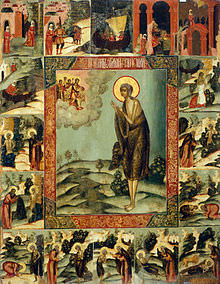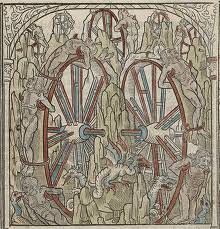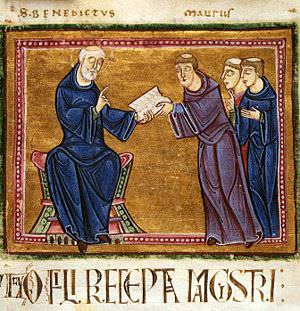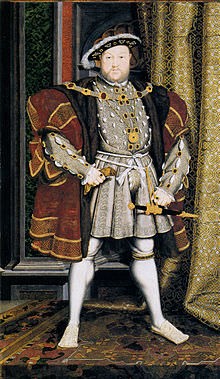Fixing the Liturgy with CJ Jones – The Medieval Podcast, Episode 272
This week on The Medieval Podcast, Danièle speaks with CJ Jones about Dominican nuns, their theological sophistication, and how left their own unique mark on the Middle Ages.
BOOK REVIEW: The Tapestry by Nancy Bilyeau
Joanna Stafford, our intrepid ex-Dominican super sleuth is at it again. This time, she’s hurled straight into the midst of plotting and deception at Henry VIII’s court.
10 Creepy Things to See at the Louvre That Are Better Than the Mona Lisa
If you’re an ancient historian, a medievalist, or early modernist, there are so many other amazing pieces and works of art a the Louvre other than these two tourist staples. Here is my list of cool, creepy, unusual and better than the Mona Lisa at the Louvre in Paris.
Petrus Hispanus (circa 1215-1277) and ‘The Treasury of the Poor’
The identity of Petrus Hispanus is a matter of some controversy. Part of the problem is centred on the fact that ‘Hispanus’ covers the general region of the Iberian Peninsula, referred to in medieval times as ‘las Españas’ (the Spains), incorporating both present day Spain and Portgual.
The Power of Word: Preachers in Medieval Dubrovnik
In the pastoral of the Franciscan and Dominican orders preaching became the principal task of their mission. Preaching manuals represented the basis of the new art. The preachers also used sermon collections, Bible concordances and exempla collections.
Narratives of resistance: arguments against the mendicants in the works of Matthew Paris and William of Saint-Amour
The rise of the new mendicant orders, foremost the Franciscans and Dominicans, is one of the great success stories of thirteenth-century Europe. Combining apostolic poverty with sophisticated organization and university learning, they brought much needed improvements to pastoral care in the growing cities.
Saints’ Cults in Medieval Livonia
Saints’ cults played a crucial role in medieval society. Although we know very little about the beliefs and rituals of the indigenous peoples of Livonia, either before or after the thirteenth-century conquest, we may assume that the process of Christianization must have caused major changes in their religious practices.
The medieval principle of motion and the modern principle of inertia
Aquinas’s First Way of arguing for the existence of God famously rests on the Aristotelian premise that “whatever is in motion is moved by another.” Let us call this the “principle of motion.” Newton’s First Law states that “every body continues in its state of rest or of uniform motion in a straight line, unless it is compelled to change that state by forces impressed upon it.” Call this the “principle of inertia.
John of Freiburg and the Usury Prohibition in the Late Middle Ages: A Study in the Popularization of Medieval Canon Law
In this dissertation I provide an edition of the treatise on usury (De usuris, bk. 2, tit. 7) contained in the Dominican friar John of Freiburg’s (d. 1314) Summa confessorum (ca. 1298) – a comprehensive encyclopedia of pastoral care that John wrote for the benefit of his fellow friar preachers and all others charged with the cure of souls.
Teaching the Creed and Articles of Faith in England: Lateran IV to Ignorantia sacerdotum
The broad conclusion of this thesis is that the available evidence shows that the basic principles of Christian doctrine were available both to the lower clergy who would preach and teach the Creed and Articles of Faith and also to the laity who would receive this preaching and instruction.
The Dominican Convents in Medieval Norway
In the Middle Ages, the Kingdom of Norway was larger than it is today, where the former Norwegian districts of Jämtland and Bohus are now parts of Sweden. In 1380, the Norwegian throne was inherited by the Danish king, and for the rest of the Middle Ages, Danish monarchs ruled Norway, but even though the kings often made use of Danes in the administration, the Norwegian kingdom did in fact remain as an independent part of a so-called double monarchy.
Origins of the Medieval Theory That Sensation Is an Immaterial Reception of a Form
Let me begin my own discussion of Aquinas by saying that it seems to me that Cohen adequately proved that it was a mistake to view the sensible form as existing in the soul rather than the organ, and that Aquinas is not denying to the sensible form as received by the sensor a place in the physical world, or indeed physical existence, when he says it exists immaterially or spiritually.
Vicente Ferrer and the Kings’ Jews: Reassessing the Modern Image of a Medieval Dominican
This investigation of his sermons will provide insight into Ferrer’s goals, his lasting impact on Jewish communities, and will provide a new lens through which to view Ferrer’s place in the history of the Sephardim.
Martyrs on the Move: The Spread of the Cults of Thomas of Canterbury and Peter of Verona
No matter how one viewed Peter‟s and Thomas‟s personalities, the glaring fact of their instant and enduring cults forces the conclusion that their contemporaries all over Europe saw in them, and especially in their martyrdoms, desirable and compelling prototypes for Christian perfection. The spread and extent of these cults is the subject of this study.
Charity as the Perfection of Natural Friendship in Aquinas’ Summa Theologiae
Within western civilization, there is a long-running dispute over which authority, the Christian tradition or Greek philosophical tradition, is the more trustworthy and comprehensive. Like other topics written about by Plato and Aristotle, friendship became part of this controversy. During Thomas Aquinas’ time, this struggle was focused on whether the works of Aristotle could be reconciled with Christianity.
A medieval Arabic analysis of motion at an instant : the Avicennan sources to the forma fluens/fluxus formae debate
The first and foremost topic of classical and medieval physics is the concept of motion
(Grk. kine ̄sis, Arb. h ̇ araka, Lat. motio). Within the complex of issues and problems associated with motion, the question ‘in which category does motion itself belong?’ occupied a position of considerable importance in scholastic natural philosophy.
VAGANTES: Between Tradition and Change: Monastic Reform in Three fifteenth-century German Redactions of the Life of Saint Mary of Egypt
Using the life of St. Mary of Egypt, this paper will consider three different Middle High German versions produced by reform communities and will analyze how the reform ideologies and goals manifest in the texts.
Martinus Polonus’ Chronicle of the Popes and Emperors: a Medieval Best-seller and its Neglected Influence on Medieval English Chronicler
In so doing I should like to begin by giving a brief account of Martin’s life and of the structure and contents of his chronicle before examining how widely known it was in late medieval England. Then we will turn to the various ways in which it was ‘adapted’, i.e. translated and extended by continuations. Finally, particular emphasis will be given to Martins hitherto neglected influence on a number of English medieval chroniclers.
The Ars Moriendi: An examination, translation, and collation of the manuscripts of the shorter Latin version
The Ars Moriendi is a Mediaeval Christian death manual that appeared around the middle of the fifteenth century. Though no-one is certain who the author was, there is no doubt that Jean Gerson was the major inspiration through his Opusculum Tripartitum.
Magic
No one knew the risks and rewards of magic better than Agrippa. His notorious handbook, De occulta philosophia, circulated in manuscript by 1510, though it was printed only in 1533, over the complaints of Dominican inquisitors.
The monastic response to Papal reform: Summi Magistri and it reception
This is a question which has dogged the history of the interaction between Rome and the Black monks, and it brings a second question in its wake – what were the medieval Popes trying to do with monasticism?
The Medieval Friaries of London
The five friaries under review are the houses that lasted up to the Dissolution in 1538: the Dominican Black Friars, the Franciscan Grey Friars, Carmelite White Friars, Augustinian Austin Friars and the house of Crossed or Crutched Friars
The Spiritual and the Supernatural according to Thomas Aquinas
The Spiritual and the Supernatural according to Thomas Aquinas Murray, Andrew A paper delivered at the Biennial Conference in Philosophy, Religion and Culture,…
The Friar of Carcassonne
The Friar of Carcassonne: Revolt against the Inquisition in the Last Days of the Cathars By Stephen O’Shea Douglas and McIntyre, 2011 ISBN…
Getty Museum acquires 13th century Bible
The J. Paul Getty Museum has acquired the Abbey Bible, a 13th-century Italian book that is considered to be an important example of…
